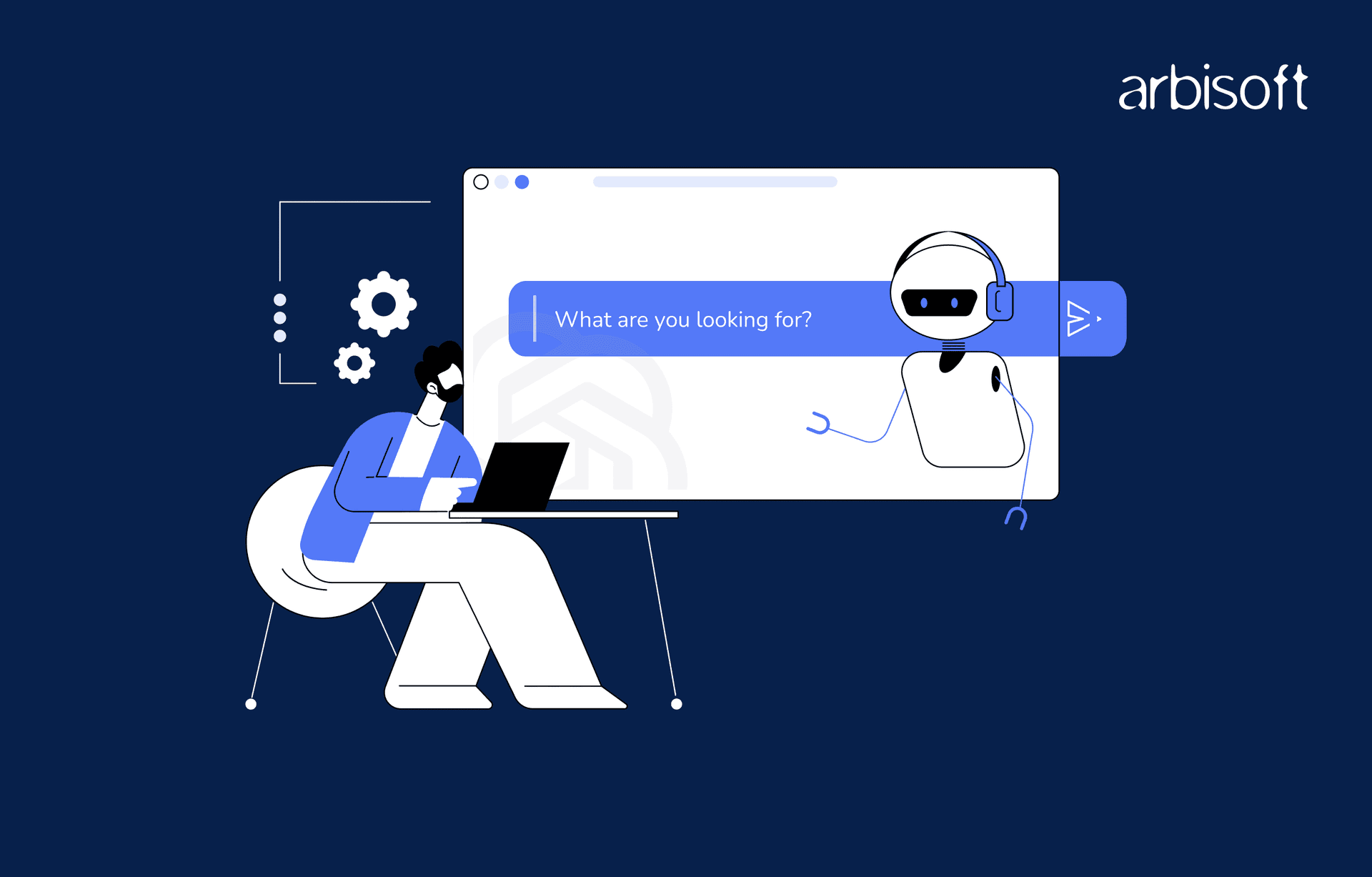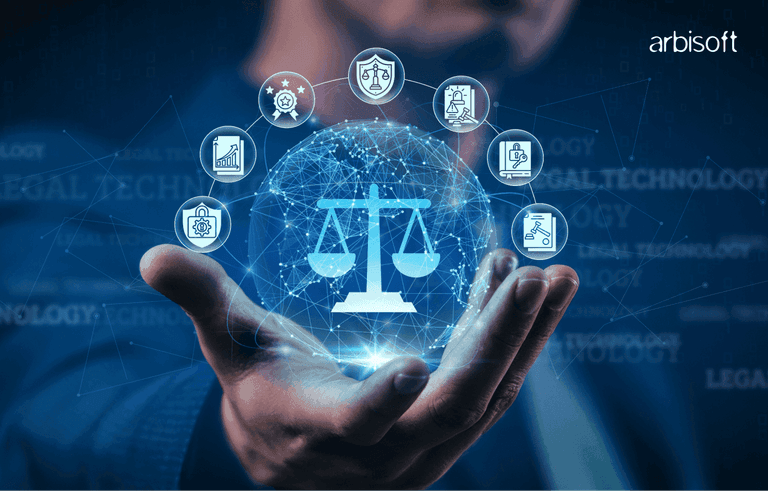We put excellence, value and quality above all - and it shows




A Technology Partnership That Goes Beyond Code

“Arbisoft has been my most trusted technology partner for now over 15 years. Arbisoft has very unique methods of recruiting and training, and the results demonstrate that. They have great teams, great positive attitudes and great communication.”
How AI Will Transform Search Engine Technology in the Next Decade

Imagine a world where your search engine instantly gives you the right results without making you dig through useless links. This is the future of AI-powered search technology, ready to change how we find and use information online.
Right now, search engines have some shortcomings like basic personalization, hit-or-miss understanding of what you mean, unreliable updates, and awkward language support. These problems make searching online more challenging and frustrating.
AI aims to fix these issues. It helps search engines better understand what you're looking for, predict your needs, and give you accurate, timely, and personalized results. It’s like having a chat with a helpful assistant who directly answers your queries and provides relevant links as sources.
In the next decade, search engines will become easier to use, with better voice and visual searches, smooth language support, and real-time information. The future of search will offer a faster, more personalized path to the information you need, all thanks to AI.
This blog will look at where search engines are today and what we can expect in the future. By the end of it, you’ll be able to understand how AI is transforming search engines to deliver faster, more personalized, and more accurate results, making your online searches easier and more effective.
1. Personalized Search Results
Right now, search engines like Bing, Yahoo!, and Google try to personalize results based on your history and preferences. For example, when you search for "best boba tea shops" in your city, the results might include a mix of places, not all of which match your specific taste for relaxing, soothing spots.
In the future, advanced AI will make search results much more personalized. If you often look for sushi restaurants and eco-friendly products, the AI search engine will remember this and show you results that fit these preferences. So when you search for dining or shopping options, you'll get recommendations that match what you like while ensuring the brands also practice environmentally friendly practices.
2. Improved Natural Language Processing (NLP)
NLP has gotten better over time, but search engines still have trouble with complex or conversational questions. For example, if you ask, "movies where the hero loses but still wins," current search engines might not fully understand what you mean and give you mixed results.
With future AI improvements, search engines will get better at understanding complex questions. For instance, if you ask, "Can you recommend movies where the hero loses a battle but wins the overall war?" SearchGPT or any AI-driven search engine will provide accurate suggestions like "Rocky" or "Gladiator," thanks to a better grasp of what you're asking.
3. Context-Aware Search Engines
Context-aware AI will improve search engines by understanding the relationship between questions in a conversation. While current systems can struggle with context and accents, future advancements in AI will allow for more seamless interactions. For example, asking about the weather and then asking if you should pack an umbrella will lead to a more relevant and connected response. However, improvements in accent recognition may not necessarily advance at the same pace.
4. Visual Search Enhancements
Visual search tools are available but often limited. For example, if you upload a picture of a rare flower, Google, Bing or any conventional search engine might have trouble identifying it and providing useful information.
With advanced AI, visual search will become much more effective. For instance, if you upload a photo of a specific handbag, an AI-backed search engine will not only identify it but also show where you can buy it, compare prices, and suggest similar styles. This will make visual search a powerful tool for finding and exploring products.
5. Predictive Search Capabilities
Search engines currently offer basic predictive search suggestions. For example, if you start typing "how to bake," it might suggest completions like "a cake" or "bread," without understanding your specific needs.
In the future, AI will make predictive search much smarter. For example, if you start with "how to bake," the AI-powered search engine might suggest "how to bake gluten-free cookies" or "how to bake a cake for beginners," based on what you’ve searched for before. This will make search suggestions more relevant to what you actually need, especially when combined with predictive analytics solutions that analyze user behavior in real-time.
6. Real-Time Data Retrieval
Search engines try to update information regularly, but there is often a delay. For example, searching for "latest stock market news" might show articles from hours ago rather than the most current updates.
In the future, AI will enable real-time data analysis. For instance, searching for "latest stock market news" will provide up-to-the-minute information, including live data feeds and current market trends. This will ensure you get the most recent and relevant updates.
7. Improved Search Algorithms
Current search algorithms are good but they could be better at ensuring search relevance For example, searching for "best hiking trails" might show top results based on SEO rather than actual user reviews and trail quality.
Future AI-driven algorithms will improve by learning from user interactions. For example, searching for "best hiking trails" will bring up trails that are highly rated by hikers, with detailed reviews and updated conditions, rather than just SEO-focused results. This will help you find more trustworthy and high-quality recommendations.
8. Enhanced Multilingual Support
Search engines offer translation and multilingual support but often get it wrong. For example, searching for a phrase in another language might result in awkward translations that miss key details.
In the future, AI will provide much better translation and multilingual support. For example, suppose you search for "restaurants with vegetarian options in Munich” in English. In that case, a search engine like SearchGPT will accurately translate this and show results from German-language websites, considering local reviews and preferences. This will make search results more accurate and relevant in different languages.
9. Increased Focus on User Intent
Search engines try to understand user intent, but they don't always get it right. For instance, searching for "jaguar" might show results for both the animal and the car brand, without clearly distinguishing between the two.
However, with advanced AI, search engines will become more intuitive. For example, if you've just searched for luxury cars, a search for "jaguar" will prioritize the car brand, making the results more relevant by considering your recent activity and context.
SearchGPT: A New Era of Intelligent Search
While advanced AI models like GPT-4 are very powerful, they haven't been fully used in most search engines yet. Current search engines mostly depend on matching keywords and don't make the most of conversational AI or understanding the context of what you're looking for.
SearchGPT is a big step forward, based on advanced machine learning techniques, to change how we search online. Instead of just showing a list of links, SearchGPT talks with you in a friendly way to give you exact, detailed answers. This approach makes it much easier to get the information you need, offering a more engaging and useful search experience.
By focusing on understanding what you really mean and providing in-depth, helpful responses, SearchGPT sets a new standard for finding and interacting with information online.
Conclusion
AI, especially advanced models like SearchGPT, will undoubtedly transform search engine technology over the next decade, making it more personalized, accurate, and user-friendly. As AI continues to advance, we can expect search engines to become even more intuitive, understanding, and responsive to our needs, while also addressing the monetization dilemma for AI search engines. This will not only enhance our online search experiences but also revolutionize the way we access and interact with information.
The future of search is bright, and AI is leading the way. Get ready for a decade of innovation and improvement in search engine technology!
























